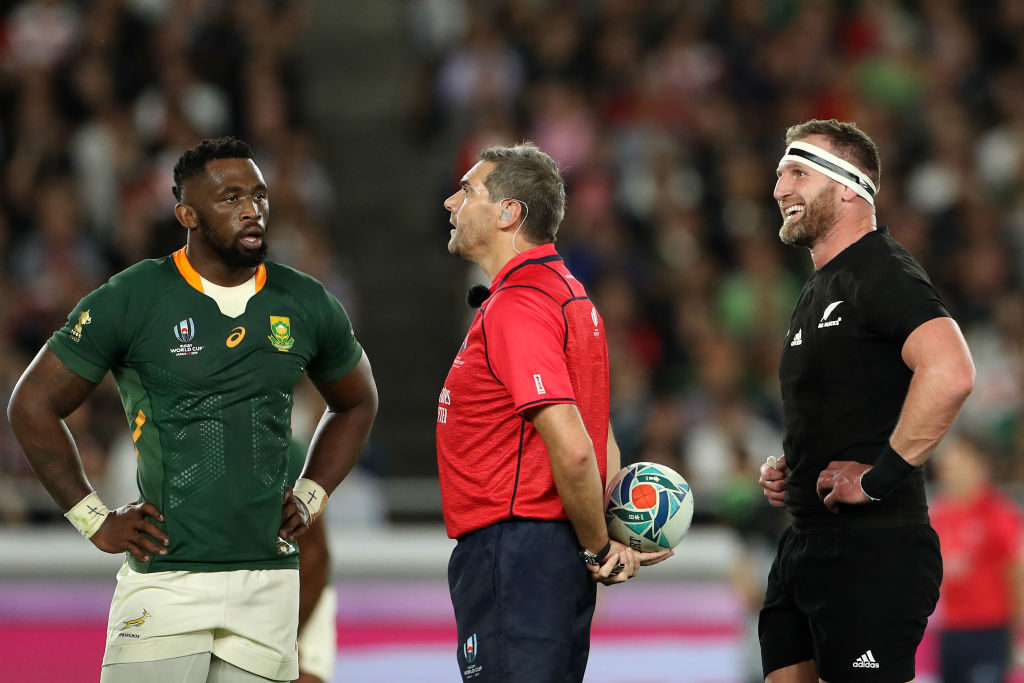An on-field review system for each team captain could help to eradicate controversial calls, writes former Springbok STEFAN TERBLANCHE in the latest issue of SA Rugby magazine.
Another bumper issue: Kolbe soars to new heights
Just a couple of weeks in and the World Cup, the game’s biggest spectacle, was in the news for all the wrong reasons
World Rugby was forced to publicly acknowledge that performances from the officials over the opening weekend of action were not up to standard.
When I reflect on that admission, I realise we are debating the one constant in rugby: the inconsistencies of the referees and the manner in which they arrive at certain decisions. Before I carry on, I must make it clear that I don’t think referees hold any bias or prejudice in any game and it’s a job I certainly wouldn’t want.
Referees are the same as rugby players and when you have a bad game, drop a ball or miss a tackle, it doesn’t mean you are a cheat or a bad person; it just means you are having a bad day or you are out of your depth at a certain level. Trust me, I have been there before with missed tackles and dropped balls and at international level you get found out quickly as a player and as an official.
It’s not personal; it’s just the way rugby works. But too many mistakes and calls go the wrong way. Even taking into account the human element, it’s just unacceptable in such high-stakes matches.
So, how do we fix this problem?Technology is one way, but we must understand that we will slow the game down and a half that already runs over regulation time could easily take another 5-10 minutes longer, depending on how many times the referee goes upstairs. I think we could look at cricket and tennis (two of the most traditional games in the world) and allow the captain of each team to review a couple of decisions. Let’s start with two, one for each half.
This won’t rule out any wrong decisions, but it will at least give captains the opportunity to review those that are obvious to see on the field and even more glaring when viewed from the comfort of our armchairs a thousand miles away from the action; specifically incidents that have been missed by all officials.
A case in point might have been Kieran Read’s off-the-ball ‘tackle’ on Pieter-Steph du Toit in the group’s opening match between New Zealand and South Africa, which would in all likelihood have brought some sort of sanction.
The game might take 10 minutes longer and we might have to extend our credit at the local liquor store having 10 more minutes to drown our sorrows or celebrate, but we should get more incorrect decisions overturned and in general have a happier supporter base come the end of 80 or should I now say 90 minutes.
It’s not the perfect solution but we have to start somewhere. When World Rugby says there is a problem with officiating, we know we have a problem. When international coaches like Michael Cheika and Rassie Erasmus are not happy we need to listen, for the good of the game of rugby.
ALSO READ: How Boks can turn the tables on Garces
*Terblanche is a former Springbok who earned 37 Test caps. He is now the CEO of the SA Rugby Legends Association and will serve as a member of World Rugby’s judicial committee at the 2019 World Cup. His column was brought to you by Tuttle Insurance Brokers.

Photo: Hannah Peters/Getty Images





